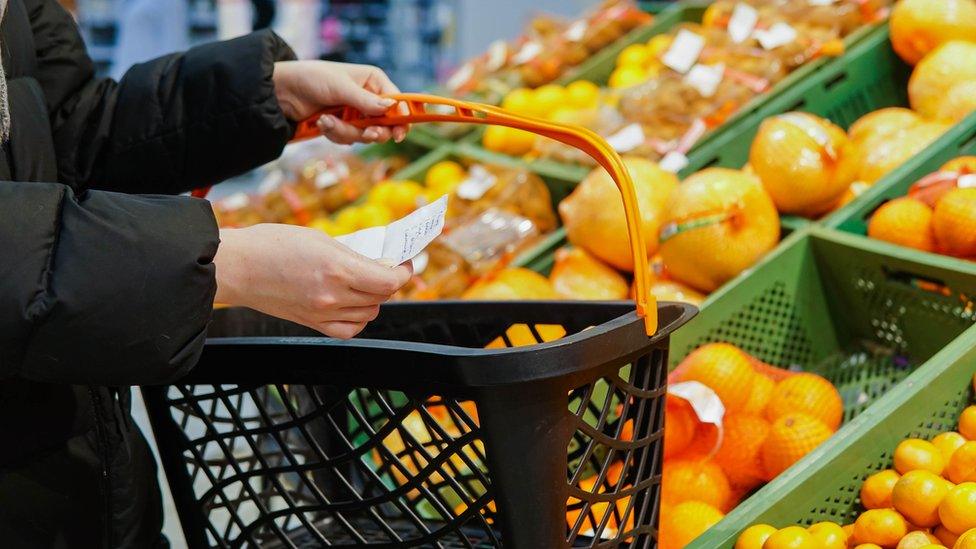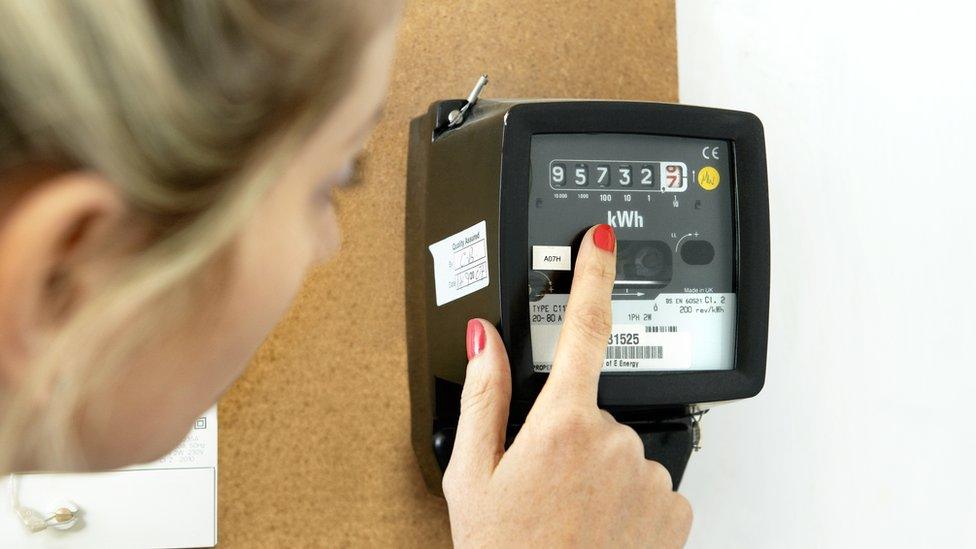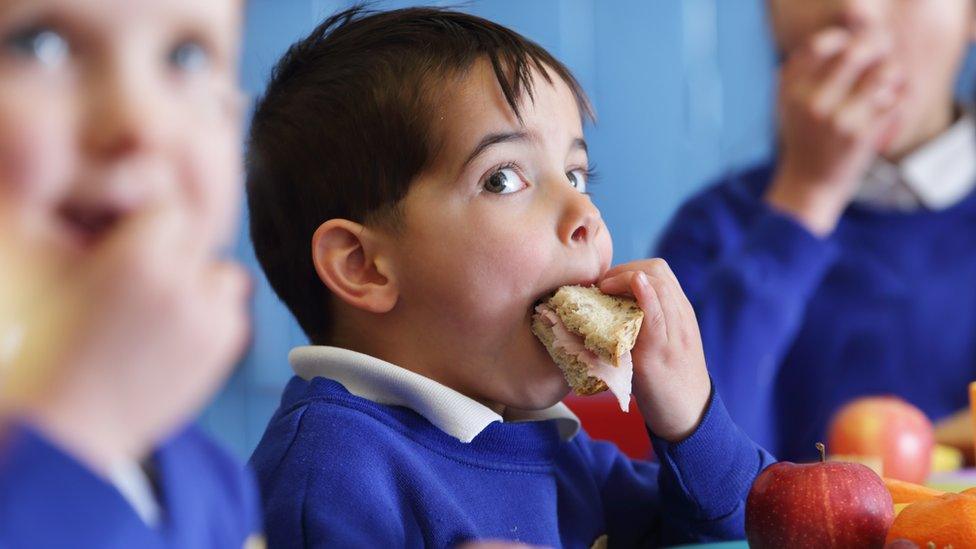Cost of living: Women 'bearing the brunt' of rising prices
- Published

The report described women as the shock absorbers of poverty
Women in Northern Ireland are bearing the brunt of the cost-of-living crisis, new research suggests.
The report, carried out by the Women's Regional Consortium and Ulster University, indicates the crisis is having a negative impact on women's mental and physical health.
The research focused on a group of 250 women in Northern Ireland.
It found that rising food and energy bills were putting pressure on households here.
Of those who took part in the survey, 75% were struggling to pay for food and 73% were struggling to pay their electricity bill.
The report describes women as "shock absorbers" of poverty - going without food and heating to protect their children and families, with 43% of women who took part in the survey having skipped a meal.
Some women said they were eating out-of-date food in order to prioritise keeping the house warm.
'Making torturous decisions'
There are fears that cuts to both the education and communities departments will add to the pressure they are facing - for example, those entitled to free school meals will not have holiday hunger payments over the summer.
The report said this decision would increase hardship and food insecurity for about 96,300 children, who it said have lost £27 a fortnight.
Siobhán Harding, from the Women's Support Network, said: "Many are making torturous decisions around feeding themselves and their families. They are faced with no other choice and the stark reality is they are unable to live dignified, healthy lives.
"This should not and cannot be acceptable for women living in Northern Ireland."
She added that the crisis could worsen over the summer as children go without school meals.
"We are calling for the Holiday Hunger Scheme to be urgently reinstated and for the Healthy Start Scheme to be widely publicised to ensure women and children do not go hungry during the summer months," she said.
Offered money from piggy banks
The report said cuts to public services like health, social care, childcare and education mean it is often women taking on unpaid work and caring roles - 28% of the women who took part in the research provided unpaid care.
Rising childcare costs have forced some women out of work as they cannot afford to.
The impact of the cost-of-living crisis is being felt in their physical and mental health with women reporting increased anxiety, sleeplessness and panic attacks.
Some women gave examples of their own children offering them money from their piggy banks because they know money is tight.


Nuala Fitzpatrick says the cost of living has had a "massive impact" on her life
'I had to go through counselling'
"It's got to the point where you know things are bad when you're scraping down the sides of sofa for loose change or underneath the car to get a few pounds to buy milk or bread or even fruit," Nuala Fitzpatrick told BBC News NI's Good Morning Ulster programme.
The 27-year-old single mother said the cost of living crisis had had a big impact.
"I'm sure I'm not the only one that feels as if skipping a meal on a regular basis is a normal thing," she said.
"People don't tell you the hardships of being a first-time mum.
"The price of formula - especially formula that helps babies with colic or who struggle to keep milk down, those seem to be the dearest.
"That's just extortionate. You're putting £20 away before you even buy a packet of nappies or a packet of wipes.
"Nappies cost £13 for just under 30 nappies.
"It's massively impacted me. I was depressed and I ended up having to go through counselling when I was asking 'how am I going to survive?'
"It's also fathers out there that are struggling too. If there are men's support groups out there, they should let themselves be known to provide support."

Dr Ciara Fitzpatrick, lecturer and researcher at the Ulster University's School of Law, said: "This research very clearly demonstrates the disproportionate harm that the cost-of-living emergency is having on women and children.
"Women are being plunged into poor mental and physical health as they strive to protect their children through missing meals, getting deeper and deeper into debt, and shielding them from the significant toll that the economic crisis is taking on their lives."
She added that unless cuts into the communities and education budget are reversed, "women and children will go hungry this summer".
"The end of the Holiday Hunger Scheme marks the end of crucial support for around 96,300 children in Northern Ireland. This, coupled with a potential reduction to the Discretionary Support Fund by the Department for Communities, will increase the risk of destitution for many families who are already unfairly bearing the brunt of high inflation."
Related topics
- Published2 June 2023

- Published30 March 2023
